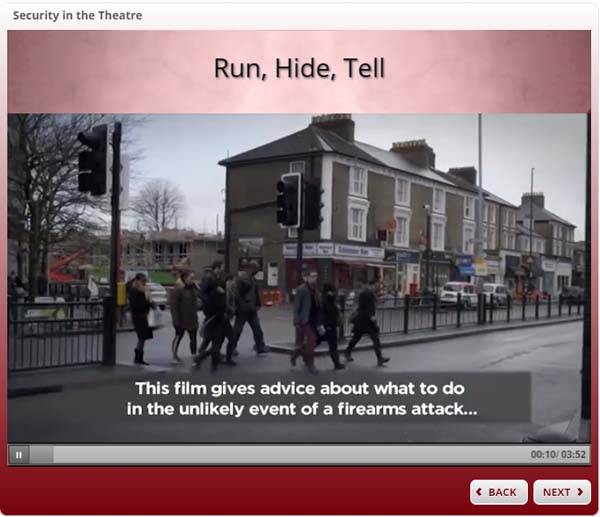How would you react in the face of danger?
Two mass shootings in the USA, a police officer slashed in the head with a machete in London, spiralling knife crime across the UK, a car bomb in Egypt, a series of security alerts in Northern Ireland, tourists warned to leave Kashmir because of a terror alert, a town in Derbyshire evacuated because a dam threatened to burst… the news is full of reports of danger.
Recent events got us thinking about personal security and, more specifically, about how people react when they’re threatened.
TV coverage of the events reported various reactions. In El Paso, Texas, when a gunman opened fire in a crowded Walmart store, some customers and employees fled to neighbouring stores while others found a place to hide.
Meanwhile, in Indian-administered Kashmir, officials issued a security alert and told tourists to leave. A day after the alert, most tourists had left the area – but some people decided to stay, saying they believed there was no cause for panic.
Closer to home, about 1,500 people were evacuated from their homes in Whaley Bridge in Derbyshire, after part of the Toddbrook Reservoir dam ruptured on 1 August. The emergency services warned that there was a 50% chance that the dam would collapse. But 31 residents refused to leave the town, despite police warnings that they were putting their own lives and those of the emergency workers at risk. As it turned out, the dam didn’t collapse and the evacuated residents started returning to their homes a week later.
Wherever we live, work or visit, it’s a fact of modern life that we need to be able to spot potential threats to our personal safety, whether it’s from natural disaster or terrorist attack. Imagine you saw someone behaving suspiciously, spotted a bag hidden somewhere unexpected or received a bomb threat on the phone. Or someone walked into the room carrying a lethal weapon. How would you react?
Many years ago, one of Ashford’s people shared a house with two members of the armed forces. The UK was on a heightened state of alert after a bomb attack during which one of the flatmates had been seriously injured and several friends were killed.
One weekday morning, the two servicemen discovered a brown, unmarked holdall sitting in the road between their cars. They reported the bag to the police and security services. The street was cordoned off and evacuation was about to begin, when a local police officer came along. He bent down and unzipped the holdall. The two servicemen fled in opposite directions – Usain Bolt couldn’t have caught them.
The holdall contained dusters and cleaning sprays; the local Betterware rep had given up half-way through his round.
Even though it turned out to be an innocent mistake and not a terror attack, the servicemen did the right thing in reporting the suspicious bag, and in getting away as fast as they could. But would you have done the same?
Unless it has actually happened, none of us knows what we would do. And let’s face it, not everyone is naturally equipped for dealing with emergencies.
It’s not easy to know what’s best to do in a potentially dangerous situation. Yes, we need to be vigilant – but without lapsing into paranoia. Not every young person wearing a hoodie is a knife-wielding gang member, most people wearing rucksacks on the train are not bombers, and just about anyone who has ever carried a bag has left it behind at some point!
And yes, we should listen to the experts’ advice. Complacency is not an option. But we also need to apply our own judgement. You might have been in a similar situation before and know how to handle it. You might understand the risk but decide it’s worth the gamble.
As it turned out, the residents who refused to leave Whaley Bridge were safe after all. Time will tell whether the tourists who stayed in Kashmir made the right decision.
Security advice at your fingertips
Our ready-to-use Security elearning module looks at security hazards and risks that people might come across in their work. It includes advice on how to react if you feel threatened or are caught up in a violent incident.
This version is specifically developed for people who work in the theatre and other entertainment venues, which are high-risk targets for terrorists, thieves and other criminals. We can customise the module to suit any type of business that is at risk, or for your particular company or organisation if you wish.
Email info@ashfordgs.com or call us on 01962 624268 to find out more.


